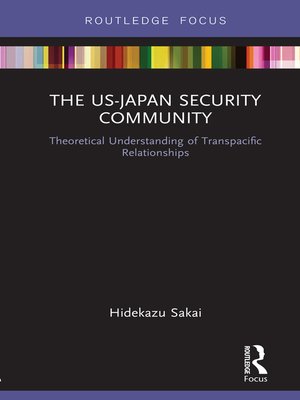The US-Japan Security Community
ebook ∣ Theoretical Understanding of Transpacific Relationships · Routledge Studies on the Asia-Pacific Region
By Hidekazu Sakai

Sign up to save your library
With an OverDrive account, you can save your favorite libraries for at-a-glance information about availability. Find out more about OverDrive accounts.
Find this title in Libby, the library reading app by OverDrive.



Search for a digital library with this title
Title found at these libraries:
| Library Name | Distance |
|---|---|
| Loading... |
Drawing on the work of Karl W. Deutsch, this book argues that the United States and Japan have formed their own security community, based on a sense of "collective identity." In so doing, it provides a new theoretical outlook on co- operation between the United States and Japan, offering a fresh understanding of their bilateral relationship as one that goes beyond a mere military alliance or free trade partnership.
Taking an empirical approach, Sakai analyzes three key case studies: the Persian Gulf War of 1990–1, the terrorist attacks of September 11, 2001, and the Tohoku Earthquake and Tsunami of 2011. He examines how the United States and Japan interacted with one another in their discourses and behaviors in these three instances and thus demonstrates the existence of a collective identity between the two nations.







